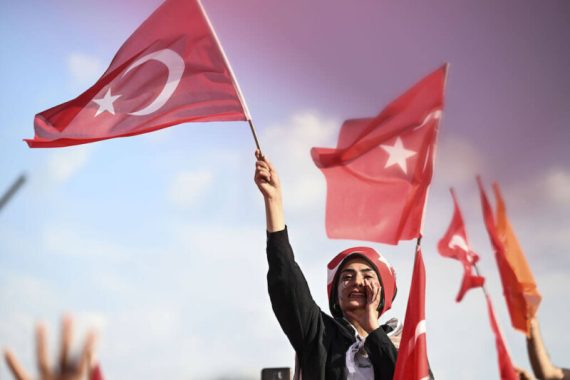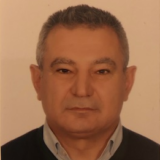T
he May 14 presidential and parliamentary elections in Turkey have been the subject of much reflection both inside and outside the country. The elections were significant in terms of several global issues, given President Recep Tayyip Erdoğan’s distinct approach to global politics.
The Peoples’ Alliance and Erdoğan himself appear to be satisfied with the results of the first round of the election, which was held smoothly and without major problems. The election followed a period of high political tension and was widely considered a success because it was peaceful, free and fair.
The concept of free and fair elections
Free and fair elections are considered a fundamental civil right and the backbone of democracy. Article 3 of Protocol I to the European Convention on Human Rights (ECHR) states, “The High Contracting Parties undertake to hold free elections at reasonable intervals by secret ballot, under conditions which will ensure the free expression of the opinion of the people in the choice of the legislature.”
A similar approach is followed by the Organization on Security and Co-operation in Europe (OSCE). The OSCE has 56 member states and was established to promote human rights, democracy, and rule of law in Europe, dating back to the 1975 Helsinki Final Act. The member states assign a special importance to the holding of democratic elections.
In the landmark 1990 Copenhagen Document, they declared that “the will of the people, freely and fairly expressed through periodic and genuine elections, is the basis of the authority and legitimacy of all government.” The key principles laid down in this and other related OSCE documents and elections can be summed up in seven words: universal, equal, fair, secret, free, transparent, and accountable.
Furthermore, the OSCE has established a special office called the “Office for Democratic Institutions and Human Rights (ODIHR)” to support and assist member states in “promoting democracy, rule of law, human rights and tolerance and non-discrimination.” The organization has even designed a special process for election observation. In December 2006, the OSCE Ministerial Council tasked the ODIHR to “further strengthen the observation methodology” and “to give utmost attention to the independence, impartiality and professionalism” of its election observation activities.
Selection of the election observation mission members
Members of the ODIHR election-related field activities are selected through an open recruitment procedure. Prior to each activity, the ODIHR issues a call for applications on its website and contracts core team members from among these applicants, based on the qualifications and experience of the candidates. Nationality and gender are also taken into account to ensure diversity in the teams’ compositions.
Observers, both long- and short-term, are seconded to the ODIHR by OSCE participating states. Additionally, some long- and short-term observers are recruited through the ODIHR’s extra budgetary fund for the diversification of the Election Observation Missions (EOMs). ODIHR election observers must be citizens of OSCE participating states.
On occasion, the ODIHR has accepted short-term guest observers from OSCE Partners for Co-operation. To ensure neutrality, the ODIHR’s methodology does not allow citizens to observe elections in their own countries.
The May 14 elections in Turkey
In accordance with its international obligations, Turkey extended an invitation to the Council of Europe (CoE) and the OSCE to observe the presidential and 28th-term parliamentary elections held on May 14, 2023.
Moreover, Turkey accepted international observation delegations from the Parliamentary Assembly of the Black Sea Economic Cooperation (PABSEC), the Organization of Turkic States (OTS), the Parliamentary Assembly of Turkic States (TURKPA), and the Parliamentary Assembly of the Mediterranean (MEDPA) upon their request. Eventually, a total of 489 international observers followed the elections. The ODIHR alone observed the elections in Turkey with a team of 401 observers across the country from 40 countries. Turkey officially stated that cooperation has been provided by the authorities to the observation missions so that they could properly carry out their activities.
The reports of these delegations suggest that the elections were held in accordance with the standards of free democratic elections and with a level of participation that is exemplary in the OSCE and the CoE geography. International observers confirmed with various statements that the security of ballot boxes was assured, and that the elections were held in a transparent, free, pluralistic, and fair manner that complied with international standards.
On Monday, May 15, a day after the election, the International Election Observation Mission (IEOM), composed of observers from the OSCE Office of Democratic Institutions and Human Rights (ODIHR), the Election Observation Mission (EOM), the OSCE Parliamentary Assembly (OSCEPA), and the Parliamentary Assembly of the Council of Europe (PACE) published the “Statement of Preliminary Findings and Conclusions” regarding the findings on the election process and held a press conference.
At the Ankara press conference, Ambassador Jan Petersen, the head of the ODIHR Election Observation Mission, said that the elections were “mostly peaceful” despite a few incidents and that Turkey’s Supreme Election Council (YSK) had worked efficiently. The delegation praised the high turnout, stating that it was a clear indicator of a “strong democratic spirit.”
There were, however, some negative remarks raised by the same delegation. It was noted that current President Erdoğan and the country’s ruling parties “enjoyed an unjustified advantage over opposition parties who had faced unequal conditions for campaigning.” Another criticism was that the YSK showed a “lack of transparency in its handling of Sunday’s elections” especially in “handling complaints at all levels of the election administration.” Further criticism included the “biased state media coverage of the contest” and “widespread intimidation against the pro-Kurdish Green Left Party (YSP).”
Finally, Farah Karimi, the head of the OSCEPA delegation, said that the denial of accreditation by the Turkish authorities to Danish parliamentarian Soren Sondergaard and Swedish parliamentarian Kadir Kasırga as election observers was a “regrettable decision.”
Recommended
Some observations
Both the presidential and parliamentary elections held on May 14 were a remarkable success for Turkey and Turkish democracy. Despite the high political tensions that started almost a year ago and the devastating earthquake that hit 11 major cities causing enormous suffering, elections were conducted in a peaceful atmosphere, including the earthquake-hit cities. There was no indication of security failure. Electorates freely and peacefully went to the polls and cast their votes with an overwhelming 89% participation rate.
Another significant point to note is that elections were opened to broad international observation. The criticism by the OSCE and the Parliamentary Assembly of the Council of Europe (PACE) noted above seems to be superficial. The fundamental point is that the incidents noted are quite isolated and relatively insignificant. In a country like Turkey with nearly 50 million voters, such incidents should be regarded as inevitable, and, conversely, it could be argued that the election observers may have felt compelled to note everything including minor and isolated incidents.
Similarly, the alleged intimidation towards the Green Left Party does not refer to “widespread” intimidation at all. The statement refers to rare incidents of execration. The pre-elections conditions, on the other hand, were far from offering an “unjustified advantage” to the government parties over the opposition parties.
While the People’s Alliance and President Erdoğan rule the state now, the CHP rules four of the country’s biggest cites, namely Ankara, İstanbul, İzmir, and Adana. Facilities were not, therefore, available only to the ruling alliance. Similarly, the opposition alliance has many TV and social media channels that operated uninterrupted during the election campaign.
Finally, there is the point about Turkey’s refusal to accept Kadir Kasırga and Soren Sondergaard as election observers. Kasırga has been acting as a PKK agent in Sweden. Although he is a parliamentarian in Sweden, he makes great efforts to extend his influence to internal affairs in Turkey. Given his biased stance, impartially observing the elections in Turkey was an impossibility. Similarly, Danish parliamentarian Sondergaard has proved himself a biased person against Turkey with his unequivocal support for the PKK terrorist organisation as evidenced in various news articles and statements.
As stated by the Foreign Ministry of Turkey, certain political statements and accusations exceed the framework of the election process and disregarded the principles of independent and impartial observation. In the end, political analyses and biased comments only jeopardize the credibility of the OSCE Election Observation Missions.





